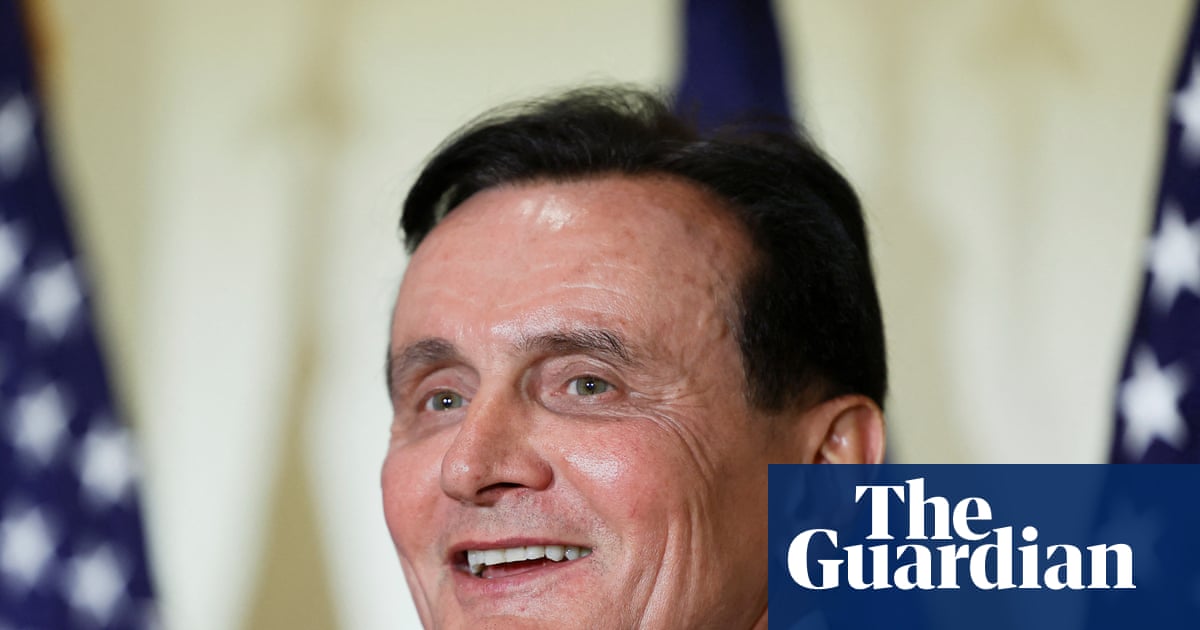The boss of AstraZeneca has said that unless the UK ramps up spending on new drugs, it could be on a trajectory to only being able to afford cheap, generic medicines rather than cutting-edge treatments.
Pascal Soriot made the remarks amid an acrimonious standoff between the pharmaceutical industry and the government over drug pricing, which has been blamed for drugmakers pausing or ditching nearly £2bn of investments in the UK this year.
Britain has been heavily criticised by pharma executives as well as high-profile scientists such as Sir John Bell, for not spending more on medicines, putting it out of line with other countries. Donald Trump has also put pressure on pharma companies to lower their drug prices in the US and increase them elsewhere.
“To say that countries will only be able to afford generics [drugs] is only an extreme case,” Soriot said on Thursday, stressing that “it’s not the case today of course, but if things continue to deteriorate the way they do … it is actually possible that it happens over time, if the ongoing trend that has been in place for 15-20 years doesn’t change.”
Soriot noted that the National Institute for Health and Care Excellence (NICE) cost-effectiveness thresholds for new drugs had not changed for two decades, “and we’ve had a lot of inflation in the last five years”.
Labour has begun drawing up fresh proposals to try to end the drug pricing standoff after intensive talks with the industry and the Trump administration.
Soriot said that under these proposals, NICE’s cost-effectiveness thresholds would be raised by less than 25%, with an adjustment to get the overall increase to 25%. He called for a “substantial adjustment based on … inflation” to these thresholds, plus a “substantial moderation” to the rate at which the government claws back profits of drug sales to the NHS.
Under a voluntary scheme, drugmakers pay back a chunk of their UK revenues to the government. At the moment, companies repay about a quarter of revenues, compared with rebate rates of 5.7% in France and 7% in Germany. Talks between the industry body and ministers to renegotiate the deal broke down without an agreement in late August.
The AstraZeneca boss said the government should double spending on new medicines to 0.6% of GDP, from 0.3% now – in line with other countries.
According to NICE’s thresholds, medicines costing between £20,000 and £30,000 per year of good health gained for patients represent good value for money for the NHS. The Association of the British Pharmaceutical Industry has called for this to be roughly doubled to between £40,000 and £50,000.
Soriot said these changes are badly needed. “The only thing I can say is what I believe would attract investments in the UK, and really create economic growth on top of improving access for patients.”
The AstraZeneca boss, who is one of the highest-paid chief executives of UK-listed companies, argued that purchasing cutting-edge treatments would save the NHS money elsewhere, by diagnosing and treating patients early.
He denied that the company was slowly relocating to the US, but warned that Europe, including the UK, had been losing out to the US and China in terms of introducing new technologies.
after newsletter promotion
AstraZeneca, Britain’s biggest drugmaker, recently announced that it would list its shares directly on the New York Stock Exchange, in a decision described as a “knock-back for London”. However, it insisted that it would remain headquartered in Cambridge, England, and stay listed on the London Stock Exchange.
It is one of a number of pharmaceutical companies that have pulled back from UK investments in recent months, ditching the planned £450m expansion of its vaccine facility in Speke in Liverpool at the start of the year, and pausing a new £200m research centre in Cambridge in September.
At the same time, the firm has announced $50bn of investments in the US, and a deal with the Donald Trump administration to lower its prescription drug prices by up to 80% and sell directly to consumers to cut out costly middlemen. This will stave off threatened US tariffs for three years.
AstraZeneca said on Thursday it had broken ground on a new $4.5bn manufacturing facility in Virginia, which will create 3,600 jobs and produce the drug substance for its weight management and metabolic portfolio, including its GLP-1 anti-obesity pill that is in intermediate clinical studies.
It reported an 11% rise in revenues to $43bn for the July to September quarter, with 16% growth in cancer drugs, and made a profit before tax of $3.2bn, up 70%.
